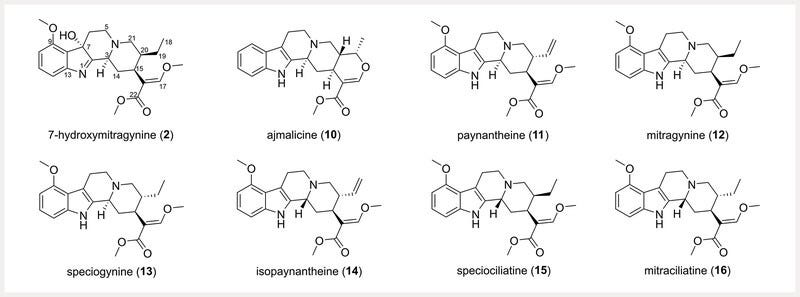Kratom: Dietary supplement or dangerous drug?
There are a lot of unanswered questions concerning the safety of this Southeast Asian medicinal plant. I offer some insight.

Yesterday, an interesting piece on kratom was published in NPR: Herbal supplement Kratom targeted by lawsuits after a string of deaths. It is very informative and well worth reading. Here’s an excerpt:
Krystal Talavera lived in the next town over, in Boynton Beach. She was 39, a nurse and mother of four. On Father's Day 2021, her fiancé woke up and found her lying face down on the floor, unconscious, according to a lawsuit. Beside her was a cup of coffee and an open packet of powder with the words "Space Dust" scrawled in black marker.
It was a concentrated kratom extract. She'd ordered it off the internet from a company in Idaho. The medical examiner determined acute kratom intoxication was the sole cause of death. In May, a federal judge ordered the vendor to pay more than $4.6 million in damages to Talavera's family.
Polarizing Opinions
I’ve encountered three types of people in public discussions on the regulation (or lack thereof) of kratom in the U.S.:
The die-hard enthusiasts who want it recognized as a dietary supplement with little governmental oversight; or
The hard-liners who see it as a dangerous and addictive drug in need of regulation; or
Folks who have never heard of it before.
Kratom policy is a highly polarized topic in the field, and I’m not going to dive into that debate today. Instead, I aim to provide readers with some high-level insights into the risks and benefits of this plant. I will note, however, that most scientists in the medicinal and natural products chemistry field that I’ve discussed this with agree that:
Kratom has tremendous potential as a starting point for future pharmacological advances in the fields of pain and addiction research; AND
There is still SO MUCH scientific research to be done to study the safety and efficacy of this medicinal plant and its bioactive chemicals.
What is Kratom?
Kratom is the common name for a plant found in the coffee family. Its scientific name is Mitragyna speciosa in the Rubiaceae family. An ethnobotanical survey in Malaysia reported that it is commonly consumed as a tea for “social and recreational needs, stamina and physical endurance, pain relief and improved sexual performance.” In the U.S., it is often used as a means of self-managing addiction to opioids.
There are different chemotypes of kratom, meaning that even within the same species, there can be significant variability in the chemical composition of the leaves and hence also variability in the resulting products made from those leaves. The main active compounds responsible for the pharmacological effects of kratom are mitragynine and related indole alkaloids.

Kratom is BIG BUSINESS in the USA
According to the kratom advocacy group, the American Kratom Association, 1,950 metric tons of kratom is sent to the US from Southeast Asia each month.
The sale of kratom is generating tremendous profits. The American Kratom Associate estimates these provide to be in the range of $1.3 billion USD.
According to the Substance Abuse and Mental Health Services Administration's National Survey on Drug Use and Health, an estimated 1.7 million Americans use kratom.
Learn More About the Science
The leading scientific expert on the pharmacology of kratom is Dr. Christopher McCurdy, based at the University of Florida School of Pharmacy. Ten of his most recent peer-reviewed scientific papers on kratom are here. I encourage you to read his open access papers available on PubMed.gov.
The FDA has created a guidance site entitled FDA and Kratom that advises against using kratom products as dietary supplements. Here’s an excerpt from their guidance document:
FDA has warned consumers not to use kratom because of the risk of serious adverse events, including liver toxicity, seizures, and substance use disorder (SUD). In rare cases, deaths have been associated with kratom use, as confirmed by a medical examiner or toxicology reports. However, in these cases, kratom was usually used in combination with other drugs, and the contribution of kratom in the deaths is unclear.
The Takeaway
NATURAL DOES NOT ALWAYS = SAFE. Nothing is as tragic as losing a loved one, especially when it is preventable. Here are two key points to memorize and share with your family and friends:
Any super-concentrated form of a plant has the potential to harm.
Combining alcohol, pharmaceutical medications, or illicit drugs with kratom is a recipe for disaster.
There are concerns about the addictive nature of kratom itself, which may undermine its purported utility as a solution to opioid addiction. On the other hand, there is promise for kratom both as a medicinal plant and in future pharmacological applications. The bottom line is that we need to better understand the science behind the variability in chemical composition of kratom chemotypes, how addictive it is, and how safe it is when taken alone or in combination with supplements or prescription medications.
I look forward to seeing how the science behind this controversial herb unfolds over the next few years.
Yours in health, Dr. Quave
Cassandra L. Quave, Ph.D. is a scientist, author, speaker, podcast host, wife, mother, explorer, and professor at Emory University School of Medicine. She teaches college courses and leads a group of research scientists studying medicinal plants to find new life-saving drugs from nature. She hosts the Foodie Pharmacology podcast and writes the Nature’s Pharmacy newsletter to share the science behind natural medicines. To support her effort, consider a paid or founding subscription, with founding members receiving an autographed 1st edition hardcover copy of her book, The Plant Hunter.
Available in hardcover, paperback, audio, and e-book formats!





